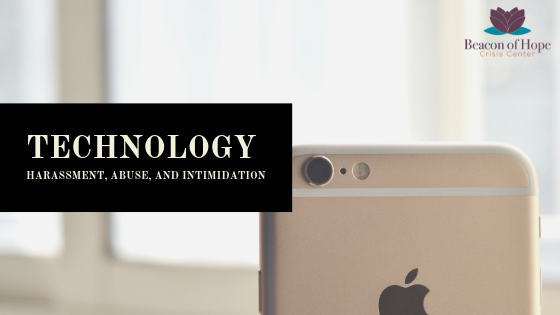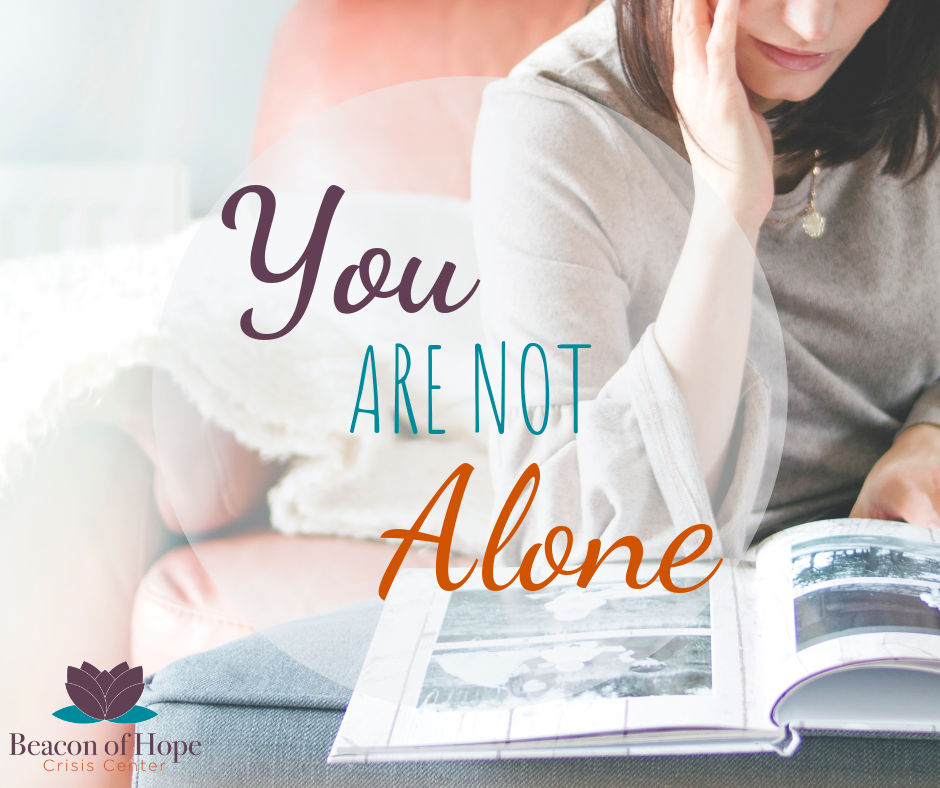|
By: Savannah Tipton Self-compassion may sound like it should be intuitive or even easy to practice. Unfortunately, it can be the opposite. We get busy, overwhelmed, and generally do not take time to check-in with ourselves. What is self-compassion? Self-compassion is the practice of taking a moment to think of our life from a different perspective. To focus on positive inner thoughts and recognize our strengths. It “entails being
warm and understanding toward ourselves when we suffer, fail, or feel inadequate, rather than ignoring our pain or flagellating ourselves with self-criticism (1).” This practice can be beneficial to anyone but even more important for survivors of trauma. A survivor of domestic violence or sexual assault may develop negative thoughts about themselves. These negative thoughts can include feeling worthless, shameful, embarrassed, or perhaps believing they could have stopped or prevented the assault(s). In some cases, victims also suffer from verbal and emotional abuse that breaks down their self-confidence. A traumatic event of any kind can turn someone’s life upside down. In the aftermath, we have to build ourselves back up. A survivor should practice compassionate self-talk, such as learning to say goodbye to, “I’m not enough,” and “I deserve this.” You do not deserve abuse of any kind. No one deserves to experience domestic violence or sexual assault and you are more than enough. Start challenging these thoughts and replacing them with positive ones. Are these thoughts true or are you saying it because that is a default? Ask yourself what you would say to a friend or family member if you were to see them suffer and offer yourself the same compassion. Self-compassion takes time and practice. It does not happen overnight. Healing takes time, but it will come. When we blame ourselves, we assume we have control over what happens to us. When in reality, we cannot control other’s thoughts or actions. What we do control is how we live our lives, what we do when faced with trauma, and where we want to go. Coping with trauma can be difficult to handle on your own; do not hesitate to seek professional help. To speak with an advocate and learn more about services at Beacon of Hope Crisis Center please call our crisis line (317) 731-6140. (1) Kristin Neff, Ph.D. <https://self-compassion.org/the-three-elements-of-self-compassion-2/> By: Savannah Tipton We live in an age of technology where nearly every person over the age of 15 has a phone. Not only do we have phones, but we are on them constantly. We enjoy playing games, exploring social media, messaging friends and family, and so on. Many people relate to the daily behavior of checking their phone before going to bed at night and again when they wake up in the morning. Younger children also have access to utilize phones, iPads, tablets, etc. While technology can be a tool for learning and connections, it can also be abused. This constant connection to the outside world can create huge risks to someone’s safety and personal well-being.
Perpetrators of domestic violence and sexual assault often use technology to monitor someone’s online activity, harass, intimidate, threaten, or otherwise control a victim. Victim advocates are available to complete technology safety plans for survivors suffering from digital abuse or harassment. Digital abuse can be used to manipulate both domestic violence and sexual assault survivors. Types of abuse perpetrated through technology:
If you or someone you know is experiencing digital abuse, please contact our confidential crisis line. Advocates are a confidential source of support available to help survivors navigate these kind of situations and can connect you to community resources. Confidential Crisis Line: 317-731-6140 By: Savannah Tipton Sexual assault often results in no physical injuries to the victim, but this doesn’t make their experience any less traumatic. After an assault, victims may experience significant short-term and long-term effects.
Effects of Sexual Assault:
Sexual assault is often perpetrated by someone the victim knows (acquaintance, friend, family, etc.). The majority of assaults occur at or near a victim’s home (RAINN). Many of us were taught about “stranger danger” in the past and some people may still believe that no one they know “could do something like that.” Unfortunately, we do not get to live in a world free from danger. However, together we can raise our voices to make a change. Start by believing survivors. If someone discloses they have been sexually assaulted, listen and believe them. If they disclose shortly after an assault, encourage them to get an exam done at the hospital. Sexual assault exams are done for free in Indiana and an experienced SANE nurse (Sexual Assault Nurse Examiner) can collect evidence that may not be available later on. This is also an opportunity for survivors to get medical care, testing, and ongoing support. Referring survivors to community resources is another way to help and you can encourage them to speak with a victim advocate. Victim advocates offer free support, education, and community referrals. Advocates can also answer questions about protective orders and reporting to law enforcement. Want to get more involved? Get out in the community and start volunteering! There are a variety of volunteer opportunities to help survivors near you. Volunteers opportunities generally include fundraising, events, volunteer advocacy, and more. Visit the career tab to learn more about volunteer and internship opportunities at Beacon of Hope Crisis Center. Finally, show survivors you stand with them as an ally by sharing resources, statistics, and other information from services providers. The simple act of sharing a post has the potential to reach someone who may need help. Your voice has power, use it to support survivors. #AllyToSurvivors If you or someone you know is a victim or survivor in need of services, please contact our confidential crisis line at 317-731-6140. Advocates are a confidential source of support available to help survivors. By: Savannah Tipton Society has typically associated feelings of grief to the death of a loved on. We can understand that someone may have difficulty processing the death despite the circumstance (illness, accidents, etc.). When we expand the definition of grief to include other things that are lost, society gives less acknowledgement or validation. Survivors of domestic violence may experience grief over lost self-esteem, loss of their home and the life they knew, or even the future they once planned for. They may experience this grief during and after the relationship has ended. There are many reasons survivors do not disclose abuse (humiliation, fear, guilt, shame) and this can further complicate feelings of grief. Survivors need access to support as they start their healing journey. Some may find support from friends and family while others turn to professionals.
To better understand the connection between grief and domestic violence, we must first look to all that a survivor of domestic violence may lose or leave behind after being victimized (see below). Together we can become more educated and give survivors validation to grieve or mourn all that they have lost. Advocates are available to validate feelings of grief and connect clients to supportive services and free counseling. Confidential Crisis Line: (317) 731-6140 Losses Which Are Grieved
By: Savannah Tipton The word rape may seem aggressive, harsh, nasty, or otherwise may make people uncomfortable. As a society, we often stray away from using the word “rape.” For example, it may be referred to as sexual assault, sex, sexual misconduct, forced sex, unwanted intercourse, etc.
It is also common for people to focus on the details surrounding a rape. Questions that perpetuate victim blaming focus on where they were, what they were wearing, time of day/night, and so on. When we spend time focusing on other details, our mind quickly shifts away from the victim. This shift of focus may not be done with malicious intent. It could be that people do not want to believe it could happen, it’s scary, and it’s not something most people want to think or talk about. Our primary focus should be on helping the people that are victimized by rapists. Unfortunately, rape is among the most under-reported crimes and even fewer cases will ever be seen in court. As a community and society, we must stand with survivors and show them support. The word rape may seem aggressive, harsh, nasty, or otherwise may make people uncomfortable and that is exactly why we need to be using it. To speak with an advocate, call our confidential crisis line: 317-731-6140 By: Marty Burtt Beacon of Hope Crisis Center’s Foster Pet Program eliminates a very common barrier for domestic violence and/or sexual assault victims. Research has shown that 48% of battered women will delay leaving their abuser because they fear what will happen to their pet(s) after they leave. Pets are a common tool used by abusers to control the victim by threatening, harming, or killing the pet. Our Foster Pet Program gives domestic violence and/or sexual assault victims a temporary, safe home for their furry family members while they work on becoming self-sufficient.
Our volunteer foster families have the unique opportunity to provide much needed help to victims of domestic violence and/or sexual assault. Instead of having to choose between leaving their beloved pet with their abuser, or surrender the pet to a shelter, victims can apply for our program and know that their pet is being loved and cared for until it can come back home. Being a foster family offers the companionship of having a pet, without the lifelong commitment. Every year, 68% of abused women report violence towards their pet from their abuser. Our foster families can give love and affection to pets that have experienced their own trauma. If you are interested in learning more about the program or signing up to become a foster family, please click here. By: Marty Burtt Beacon of Hope Crisis Center’s Foster Pet Program is a unique service that we are proud to be able to offer to our clients. Family pets offer a sense of stability, comfort, and unconditional love that creates a special bond between a family and their pet. In homes with domestic violence and/or sexual assault, the family pet is at a high risk of being abused and/or neglected. Over 71% of battered women reported that their batterers had harmed, killed, or threatened animals to coerce, control, and humiliate them*. Additionally, numerous surveys have reported that 25% to 40% of battered women report they delayed their decision to seek safety out of fear for their animals’ welfare**. Our Foster Pet Program helps protect pets in homes where violence is happening by placing them in a temporary, safe home until it is safe for them to be back with their family.
Our Foster Pet Program gives victims peace of mind in knowing that their pet/s is safe. Our Foster Pet Program Coordinator (FPPC) gets weekly updates from the foster family on the pet/s and how the pet/s is doing and then provides that update to the victim. The FPPC is in consistent communication with everyone involved with the pet/s. We are always excited when victims have secured a safe home and can safely be reunited with their pet/s. This program is available to any victim of domestic violence and/or sexual assault that is fleeing their abuser, as well as victims that are receiving services from other agencies. Beacon of Hope Crisis Center has recently launched the Central Indiana Pet Abuse Link Task Force to help keep Indiana pets safe. The Pet Abuse Link Task Force is comprised of individuals within the community that share our passion for keeping pets safe. Learn more about our Foster Pet Program here. *Ascione, Weber & Wood, 1997 **McIntosh, 2002 By: Shelby Bubnick & Savannah Tipton Focusing on the positives in life can be difficult after experiencing trauma. An excellent way to lift your spirits is to write down everything you are grateful for. You can do this weekly or daily, whatever works for you and your schedule. Keeping a gratitude journal can improve your mood, make you more resilient, and can even help you live longer. It’s simple! Start your gratitude journal with five things you are grateful for. Repeat this activity at least once a week.
TIPS
By: Shelby Bubnick Every 98 seconds, an American is sexually assaulted.* The prevalence of sexual assault is alarming, and it affects more than the primary victim. Sexual assault can also affect the friends, family, and community of the survivor. If your loved one has been sexually assaulted, it is normal to feel upset, or at a loss for words. In some cases, you may be the first person the survivor has told. This may put pressure on you as you search for the right things to say and do. Consider the following when responding to a loved one that is disclosing they have been sexually assaulted.
Advocates at Beacon of Hope Crisis Center are trained to assist victims of sexual assault by providing support and education. Learn more here. If you would like to speak with an advocate, please call our crisis line (317)731-6140. By: Shelby Bubnick After experiencing trauma, you may be healing from injuries or feeling emotionally drained. It is essential to keep your body healthy and active during this time. Whether it happened recently or many years ago, there are many ways you can cope with short-term and long-term effects of trauma. Reactions to trauma can be psychological, emotional, cognitive, physical, and behavioral. Common reactions to trauma are listed below.
Psychological and Emotional
Coping with trauma can be hard to do on your own, do not hesitate to seek professional help. To speak with an advocate and learn more about services at Beacon of Hope Crisis Center please call our crisis line (317) 731-6140. |
|
CAREER opportunities © 2025 Beacon of Hope Crisis Center Privacy Policy Accessibility Statement Board Portal Login |












